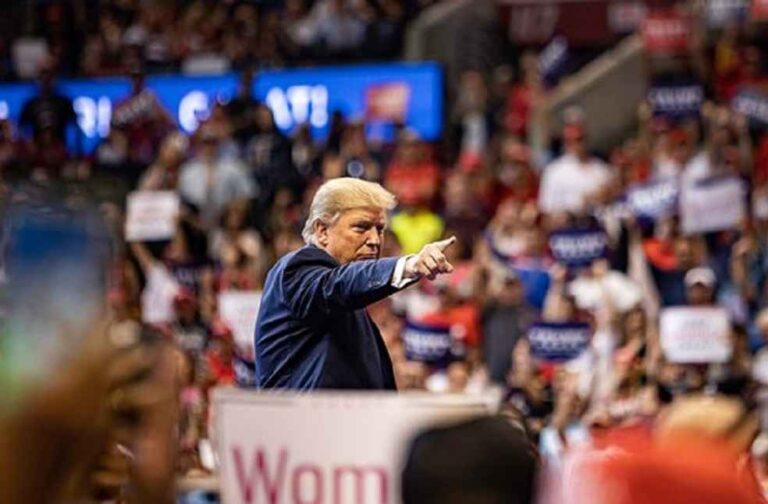President Donald Trump is preparing to ease the impact of tariffs on American car makers, according to a senior White House official. Commerce Secretary Howard Lutnick described the move as “a major victory for the President’s trade policy by rewarding companies who manufacture domestically,” in a statement shared with Reuters.
The upcoming measures will include reducing some import duties on parts used in vehicles manufactured within the United States. Although cars made outside the country will continue to face automotive tariffs, they will be exempt from additional levies like those imposed on steel and aluminium products, the Wall Street Journal reported.

Trump is expected to announce the changes during a rally in Michigan on Tuesday, marking his first 100 days in office. Michigan, home to major automakers Ford, General Motors (GM), and Stellantis, along with a network of more than 1,000 industry suppliers, holds significant importance for the American automotive sector.
Tariffs have been a central feature of Trump’s economic agenda, which he has described as the most beautiful word in the dictionary. However, the policy has unsettled global markets, created uncertainties for businesses, and raised concerns over a potential economic slowdown. The decision to ease tariff impacts on the motor industry is seen as an attempt by the administration to demonstrate flexibility.

GM Chief Executive Mary Barra welcomed the development, expressing gratitude for the President’s support of the US automotive sector and the millions of Americans it employs. “We appreciate the productive conversations with the President and his Administration and look forward to continuing to work together,” she said in a statement to the BBC.
Ford and Stellantis did not immediately respond to requests for comment. Meanwhile, last week, a coalition of US automotive industry groups urged the President to avoid imposing a 25% tariff on imported car parts. In a letter, groups representing companies such as GM, Toyota, and Volkswagen warned that higher tariffs would lead to increased vehicle prices, lower dealership sales, and higher costs for vehicle servicing and repairs.
Trump had previously indicated that the tariffs were scheduled to come into effect by 3 May.
GENERAL | Toyota Weighs Options for $42 Billion Buyout of Key Supplier





